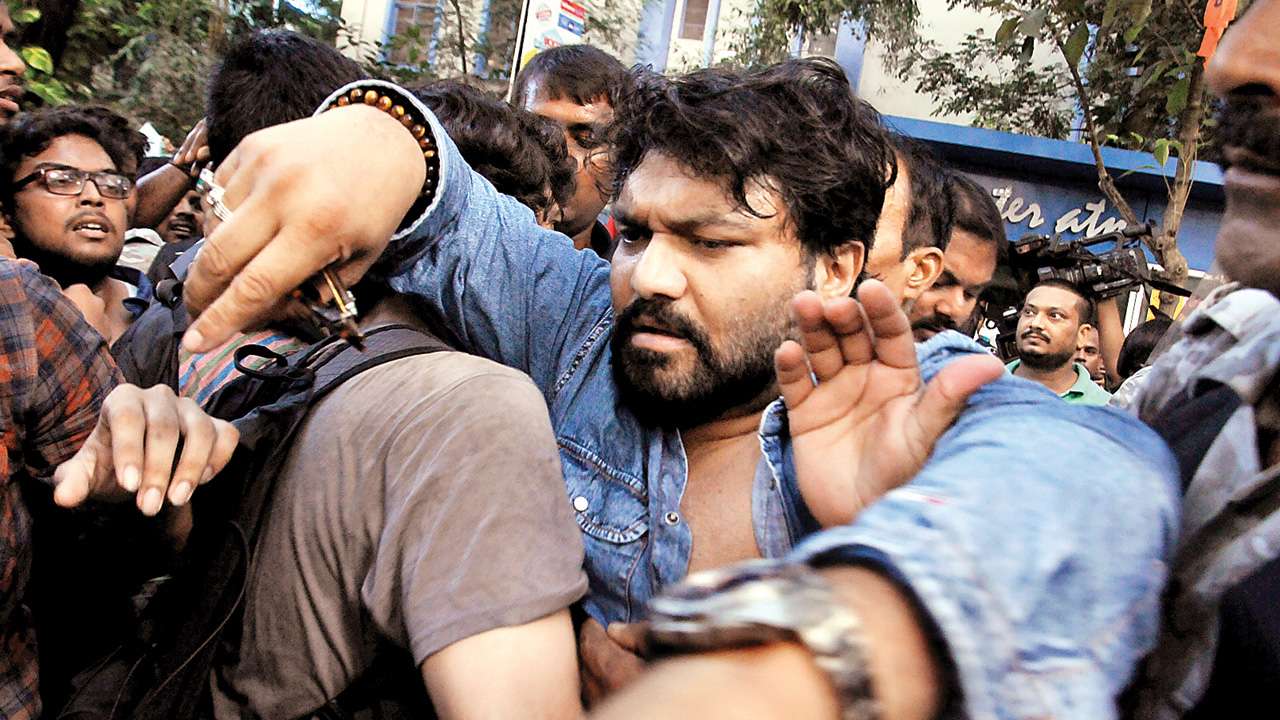DNA Edit: No guidelines – Accountability must to avoid Jadavpur-like incident
In universities, where even getting the police inside for legitimate law and order duties, can become a contentious affair, laying a guideline for student behaviour is practically unthinkable

Babul Supriyo , PTI
Campus life in democratic countries runs to a type. Protests and holding divergent views, if need be even loudly, is indeed the life and blood of universities. An open political system, which guarantees protests and sharpens awareness of issues, is as much part of education and growing up as the curriculum itself. This welcome tradition has happily manifested itself in Indian universities over the decades. Lately, however, things seem to be changing, as the ugly incident in Kolkata’s Jadavpur University campus demonstrates. It centred on the protests against Union Minister Babul Supriyo, who as BJP MP was guest of honour at a meeting convened by the ABVP with prior permission from the university authorities. Things have now reached such a pass that the larger politics has come to cast its shadow on campus goings-on and this case reflects the trend in its entirety.
Whether it is the Right or the Left, there is an inclination to believe that those with an opposite point of view should somehow be kept away from expressing them. Charges of ‘fascism’ and racist rants have taken the sheen off even important meetings. In the Jadavpur University case, the state governor had to virtually extricate the Union Minister from protesters, or else someone would have been badly hurt. To the protestors, Babul was a BJP ‘fascist’ whose entry had to be stopped. To suggest this is outrageous and deals a body blow to the concept of free speech. Students, identified in this so-called protest, should be hauled up by authorities. But the Jadavpur incident is by no means unique. Similar incidents take place on many troubled varsity campuses, throughout the country.
In JNU, for instance, there have been controversies over meetings organised by Left-affiliates, including Maoist supporters and even secessionists. It can be no one’s case to ban any political view – except perhaps, those proscribed by law or those where the moral quotient is too high to make a public spectacle of. But at the best of times, it is a thin line. Surely, it cannot be argued that a participant be excluded because he holds views that is different or contrarian to conventional wisdom. Thanks to the recent incidents on campuses, there is a view gaining ground that authorities in universities should exercise their discretion, preferably with guidelines. But that presents its own set of problems.
A charged political campus is unlikely to yield ground to any such diktat or law. Plus, it gives a handle to a vice-chancellor, a likely political appointee, who may take it upon himself or herself to ‘restore’ order on campus, by any means, fair or foul. In universities, where even getting the police inside for legitimate law and order duties, can become a contentious affair, laying a guideline for student behaviour is practically unthinkable. The answer lies in student responsibility and respect for another point of view. That is the only way out to prevent another Jadavpur.